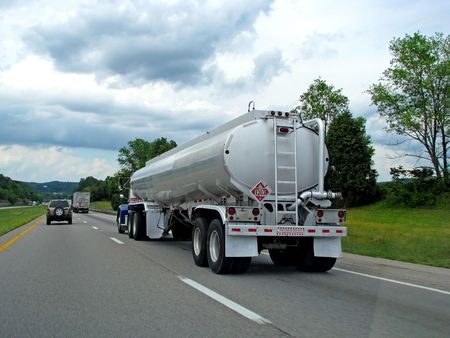How to Share the Road with Large Trucks
December 10, 2014 | Category: Automobile Accidents | ShareAs more and more vehicles, including car transport and moving trucks, are on the road during the tourist season in Southwest Florida, it is important to remember to "Share the Road". According to U.S. Department of Transportation Fatality Analysis Reporting System (FARS), a total of 3,514 people died in large truck crashes in 2012 (latest available). Seventeen percent were in trucks, and sixty-seven percent were in other vehicles, 15 percent were pedestrians, bicyclists or motorcyclists.
Here are some of the tips the Share the Road professionals at the American Trucking Association had in their press release of November 21, 2014.
- Buckle up: Safety belts reduce the risk of fatal injury by 45 percent and are a simple way to increase your safety on the road.
- Slow down: With the extra highway congestion due to holiday travel, speeding becomes even more dangerous. Allow plenty of space cushion and reduce your speed.
 Prepare your vehicle for long distance travel: Check your wipers and fluids. Have your radiator and cooling system services. Simple maintenance before you leave your home can prevent many of the problems that strand motorists on the side of the road.
Prepare your vehicle for long distance travel: Check your wipers and fluids. Have your radiator and cooling system services. Simple maintenance before you leave your home can prevent many of the problems that strand motorists on the side of the road.- Be aware of the vehicle in front of you. Allow extra space.
- Do not cut in front of large trucks: Remember that trucks are heavier and take longer to make a complete stop, so avoid cutting quickly in front of them.
- Be aware of truck blind spots: When sharing the road with large trucks, be aware of their blind spots. If you cannot see the truck driver in his or her mirrors, then the truck driver cannot see you.
- Keep your eyes on the road: Distracted driving is a major cause of traffic accidents. Even just two seconds of distraction time doubles the chances of an accident. Use your cell phone when stopped, and never text while driving.
- Plan ahead: Before you get on a highway, know your exit by name and number, and watch the signs as you near the off-ramp. Drivers making unexpected lane changes to exit often cause accidents.
- Check your emergency kit: Contents should include: batter powered radio, flashlight, blanket, jumper cables, fire extinguisher, first aid kit, bottled water, non-perishable foods, maps, tire repair kit and flares.
- Be aware of changes in weather: Weather conditions across the U.S. will be changing, especially during early mornings and evenings with the cold. Watch for weather-related obstacles.
- Leave early and avoid risks: Leave early so you will not be anxious about arriving late and to accommodate delays. Road conditions may change due to inclement weather or traffic congestion.
- Avoid extreme weather conditions: If travelling out of state, ice, hail and snow make roads difficult to travel. Try to avoid driving through extreme weather conditions, and travel during daylight.
Senior Driving AAA.com recommends:
- Avoid traveling alongside or close behind a truck. When a truck is backing, do not pass behind it. The driver may not see you or hear your horn.
- Do not pass a truck on their right when approaching an intersection. A large truck making a right turn sometimes swings wide so the trailer can clear the curb or other objects in its path. In a wide swing, the truck may turn to the left a bit before turning right or swing into the oncoming traffic lane after a turn. It is important to provide large trucks ample room to negotiate turns.
- Be sure to allow plenty of clearance between your vehicle and large trucks. Because of their size, large trucks create wind currents that can affect nearby vehicles. These currents can threaten your vehicle's stability when you are close. This is an even greater driving challenge when you are riding a motorcycle, towing a trailer or other object, or traveling on slick roadways.
Collier County Truck Accident Attorney, Randall Spivey of Spivey Law Firm, Personal Injury Attorneys, P.A. recommends that, "If you are traveling by vehicle over these busy holiday months, please keep in mind the above recommendations for 'Sharing the Road' with large trucks. Smaller vehicles are vulnerable when involved in crashes with large trucks."
Collier County Truck Accident Attorney, Randall L. Spivey is a Board Certified Trial Attorney – the highest recognition for competence bestowed by the Florida Bar and a distinction earned by just one (1%) percent of Florida attorneys. He has handled over 2,000 personal injury and wrongful death cases throughout Florida. For a free and confidential consultation to discuss your legal rights, contact the Spivey Law Firm, Personal Injury Attorneys, P.A., in Lee County at 239.337.7483 or toll free at 1.888.477.4839,or by email to Randall@SpiveyLaw.com. Visit SpiveyLaw.com for more information. You can contact Spivey Law Firm, Personal Injury Attorneys, P.A.in Charlotte County at 941.764.7748 and in Collier County 239.793.7748.

